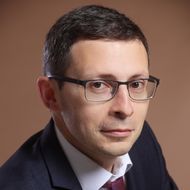HSE ISSEK Estimates of Russia’s Creative Economy Are Included in the UNCTAD’s Industry Review

In 2019, Russian creative industries’ contribution to GDP amounted to 2.4%; the creative economy employs 4.9 million people (6.8% of the total national workforce). These measurements of Russia’s creative economy obtained by HSE ISSEK were included in the international report ‘Creative Economy Outlook 2022’ produced by the UN Conference on Trade and Development (UNCTAD).
The UNCTAD publication ‘Creative Economy Outlook 2022’ presents an overview of global creative industries’ development trends, along with relevant up-to-date figures and summaries of key national policies and public initiatives to support creative industries in various countries. The HSE ISSEK experts have been studying the factors affecting creative industries development, and their contribution to the national economy for more than three years. Since 2020 these studies have been conducted in the scope of the research programme ‘Human in Creative Economy’ — one of the 28 programmes being implemented by the World-Class Human Capital Multidisciplinary Research Centre. Taking into account international practices, HSE ISSEK experts developed original approaches to quantitative measurement of creative economy, and assessed the scale of this sector in Russia. The results were presented in the research digest ‘Development of Creative Industries in Russia: Key Indicators’. They were also applied in 2021 to produce the ‘National Concept for the Development of Creative Industries, and Mechanisms for Providing Public Support for Them in Megapolises and Major Metropolitan Areas until 2030’. HSE ISSEK staff also helped to produce a reference handbook ‘Creative Industries’ for the public. Other results of the ‘Human in Creative Economy’ programme include a study of Russian cities’ creative specialisations, which for the first time allowed to assess the potential of creative industries in 197 major Russian cities and the effects of the coronavirus crisis on the country’s creative economy. Now the ISSEK researchers are focusing on the socio-demographic and other characteristics of the creative class.
A commentary by

Mikhail Gershman, Director of the HSE ISSEK Centre for Science, Technology, Innovation and Information Policy
‘Our centre’s staff, together with colleagues from the HSE ISSEK Russian Cluster Observatory, have been engaged in producing quantitative assessments of the creative economy for several years. In 2019, a major study commissioned by the Moscow City Government was launched to measure the creative industries of the city; since 2020, it continues in the scope of the Human Capital Multidisciplinary Research Centre. However, important groundwork was done much earlier: the results of a number of applied ISSEK projects to develop approaches to statistical observations of technology, innovation, and new sectors of the economy, such as engineering and industrial design, photonics, etc.
Our estimates of the creative industries’ size are important as a starting point for implementing the creative economy policy which has been actively developing in Russia in recent years. The next step is to build a comprehensive system to monitor the development of this sector, which would produce an evidence base for designing and evaluating public support initiatives for the creative economy. Relevant work is provided for in the Action Plan recently approved by the Government to implement the ‘Creative Industries Development Concept’.
In 2021, for the first time in Russia, HSE ISSEK hosted a series of academic fora on creative industries — the International Conference ‘Creative Economy: Towards Post-Crisis Recovery and Sustainable Development’, and the International Forum of Young Creative Economy Researchers. This year the conference and the young researchers’ forum will again be held on 24–25 November. Registration is open.
